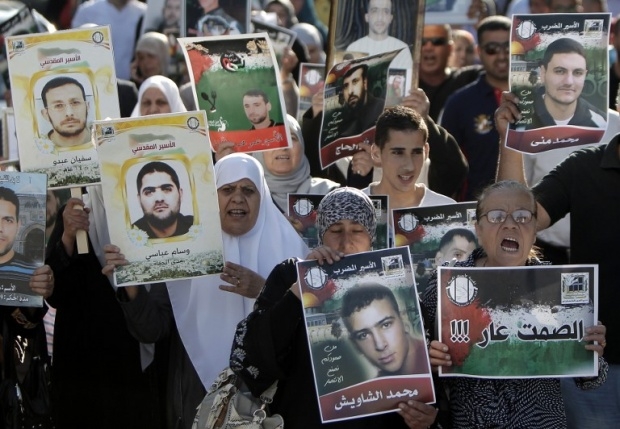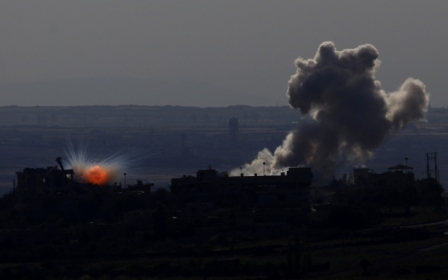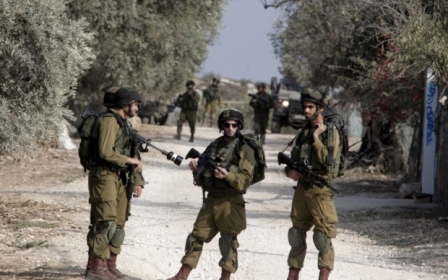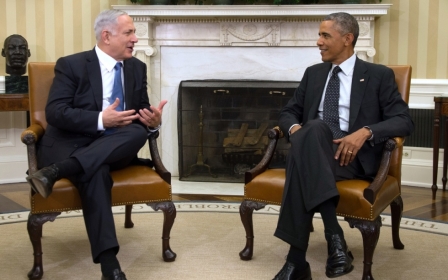Israeli government sanctions force-feeding of Palestinian prisoners

JERUSALEM – A law passed by the Knesset on Thursday with a majority of 46 to 40 will formally legalise the highly controversial medical treatment of force-feeding for Palestinian prisoners on hunger strike.
Entitled “Preventing the Harm Caused By Hunger Strike,” the law is described as a way to communicate to prisoners that “hunger striking is not a way out of prison or a way to fulfill any goals,” said Yoel Hadar, legal advisor for the Public Security Ministry, which aggressively sought to advance the bill.
The law was passed early on Thursday morning following an all-night debate just before the Knesset takes its summer break until the beginning of October.
A “softened” version of a previously proposed bill, it requires doctors intending to practice force-feeding to appear before a judge to determine that the prisoner’s life is in danger or that he risks causing irreversible disability.
Avinoam Reches, former head of the Israeli Medical Association’s (IMA) Ethics Bureau, called the bill “insane,” and informed the government committee that any doctor known to be force feeding a prisoner will be summoned to the Israeli medical ethics court. Since the bill was introduced, the IMA has responded with extensive documentation which defined the practice, in conjunction with the UN definition, as a cruel and humiliating form of torture.
“We will do everything to prevent its implementation,” said Dr Leonid Eidelman, chair of the Israeli Medical Association, who last month penned a letter to Knesset members Gilad Erdan and Ayelet Shaked, explaining that doctors were forbidden from violating their ethics through this practice, to which Erdan responded that he was confident that he would find doctors who would be willing.
Dr Eidelman oversaw the treatment of 1,000 Palestinian prisoners in Israeli hospitals over the past year, none of whom died as a result of hunger striking –evidence he points to in asserting that force-feeding is an unnecessary method which could also harm the patient’s health irreversibly or even cause death. The law’s primary purpose, said Dr Eidelman, who in 2011 went on hunger strike as part of negotiations for better conditions at state Israeli hospitals, is not to preserve life but to defuse pressure on the government.
In an official position statement, the IMA recognises that hunger strikers, who often have no other tools for protesting, present a particularly complex dilemma to doctors bound to the Hippocratic oath of “do no harm”.
However, the report states that the doctor’s sole obligation is to respect the autonomy of the patient and to inform him of the health risks associated with the decision. In the case of loss of consciousness, doctors must also be aware of the prisoners’ plans, the report says.
“A hunger striking prisoner is not sick. He is an individual who has chosen to express his protest, his position, in order to achieve individual, political or other gains by embarking on a hunger strike,” writes Dr Karni, a surgeon and the chair of the IMA Ethics Bureau, in a chapter that describes the method as a violent attack against the individual rather than the authorities, in the tradition of Gandhi and the Irish hunger strikers of the 1980s.
While the report says that doctors are allowed to resuscitate the patient if there are political developments after the patient loses consciousness, “if after resuscitation the prisoner stands by his request to refrain from treatment, the doctor must abide by this request and allow him to die a dignified death, without being subjected to repeated attempts at forced resuscitation”.
Thousands of Palestinian prisoners have undergone hunger strikes with the aims of demanding their release or in protest at prolonged administrative detention, lack of fair trials, the use of torture and interrogations, and for the right to family visitations. Demands have also been as basic as access to books, regular clothing or other rights which prisoners say they have achieved only through hunger striking, according to Randa Wahbe, spokesperson for the Palestinian Prisoner Support and Human Rights Organisation.
“Hunger strikes, historically, have been the most successful way that prisoners have gained rights in the prison, organised collectively and kept the prisoners movement alive, and for these reasons, the Israeli government wants to quash all forms of resistance within the prisons,” said Wahbe, adding that the blatant lack of respect for Palestinian prisoners’ human rights is apparent in the fact that Israel bans force-feeding of geese based on animal cruelty laws.
In recent years, thousands of Palestinians have been held from any period ranging from a number of months to a number of years in administrative detention, according to the rights group, B’tselem. Dozens of Palestinian prisoners are currently believed to be on individual hunger strikes, said Wahbe, but solidarity movements have been the highest cause for concern for Israel.
Most recently was the case of Khader Adnan, an activist with the Islamic Jihad, who undertook his first 66-day hunger strike in December 2011, thought to be the longest hunger strike in Palestinian history. He was put under administrative detention – in which Israel holds Palestinians indefinitely on security grounds and without formal charges or trial - for the 10th time in June 2014.
On 12 July, he was released after more than 11 months in jail during which he undertook a 55-day hunger strike without vitamins or supplements. He received an exuberant hero’s welcome in his hometown near Jenin in the West Bank, where virtually every family has or once had relatives incarcerated in Israeli prisons.
Speaking in a faint but long-winded voice from his home near the city of Jenin upon returning from hospital, he described hunger strikes as “the most effective way of defending our rights as a human being,” adding that Israeli decisions could not prevent Palestinian prisoners from continuing to use the method.
Many see hunger strikes as essential to Palestinian resistance itself, and they are often scheduled around Ramadan or other monumental dates like the Palestinian Prisoner’s Day or Nakba Day.
Hundreds joined Adnan during his hunger strikes, making him one of “the most potent symbols of the Palestinian people and the Palestinian struggle, which connects in the most personal way with the world outside of the prison,” said Salah Hamouri, a former Palestinian hunger striker, who was accused with the intent to murder an Israeli and jailed in 2011.
Demanding an end to solitary confinement of his group’s leaders, Hamouri was released in the second batch of released prisoners during the Gilad Shalit deal, but his hunger strike continued, and eventually succeeded, in 2012.
Hamouri expected that the force-feeding law would “easily pass,” given that it is, like the Israeli government, a “racist law in every meaning of the word, denying the basic right of prisoners,” he said.
The force-feeding bill first went through a “marathon” hearing at the Knesset in May of last summer, in the midst of a mass, 100-man strong hunger strike. However, the bill was halted when three Israeli teenagers were kidnapped near the West Bank city of Nablus, which led to a retributive attack of a Palestinian teenager and Jerusalem and the eventual outbreak of the war in Gaza. The bill was taken up only after a long process of early elections and ministry appointments last spring.
Israel’s intensified efforts to isolate hunger strikers from their families and supporters has been more severe in recent years because the Israeli authorities have come to understand their wider potential, said Amani Dayef, director of the prisoner affairs department at Physicians for Human Rights. While during the first hunger strike the organisation appointed its own doctor and lawyer to follow Khader Adnan, in the past year access was minimised.
Dayef expects that the force-feeding law could have the implications which are the opposite of what Israel intends, “by bringing more criticism and attention to the main issues”.
“This is exactly the power of the hunger strike, to put a light on the policies and injustices that everyone here and in the world know exists,” she said.
Middle East Eye propose une couverture et une analyse indépendantes et incomparables du Moyen-Orient, de l’Afrique du Nord et d’autres régions du monde. Pour en savoir plus sur la reprise de ce contenu et les frais qui s’appliquent, veuillez remplir ce formulaire [en anglais]. Pour en savoir plus sur MEE, cliquez ici [en anglais].




